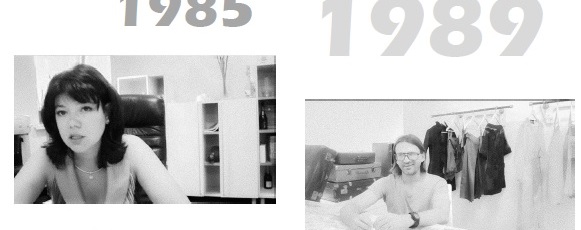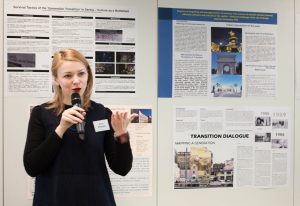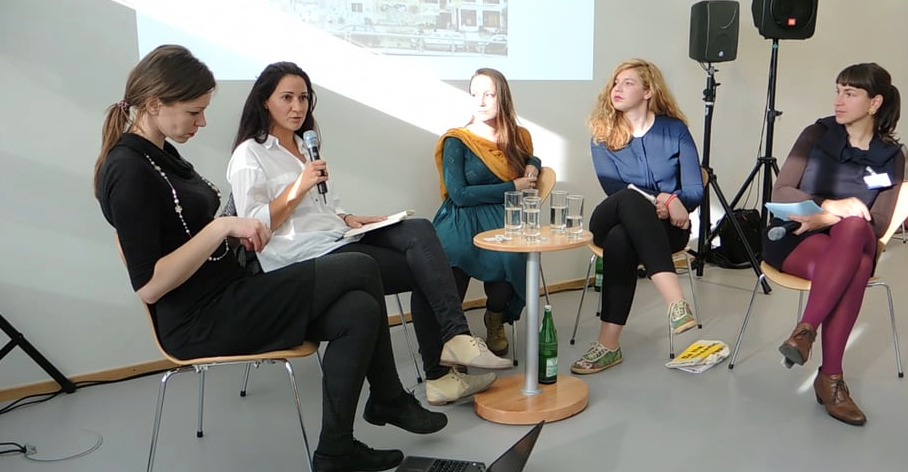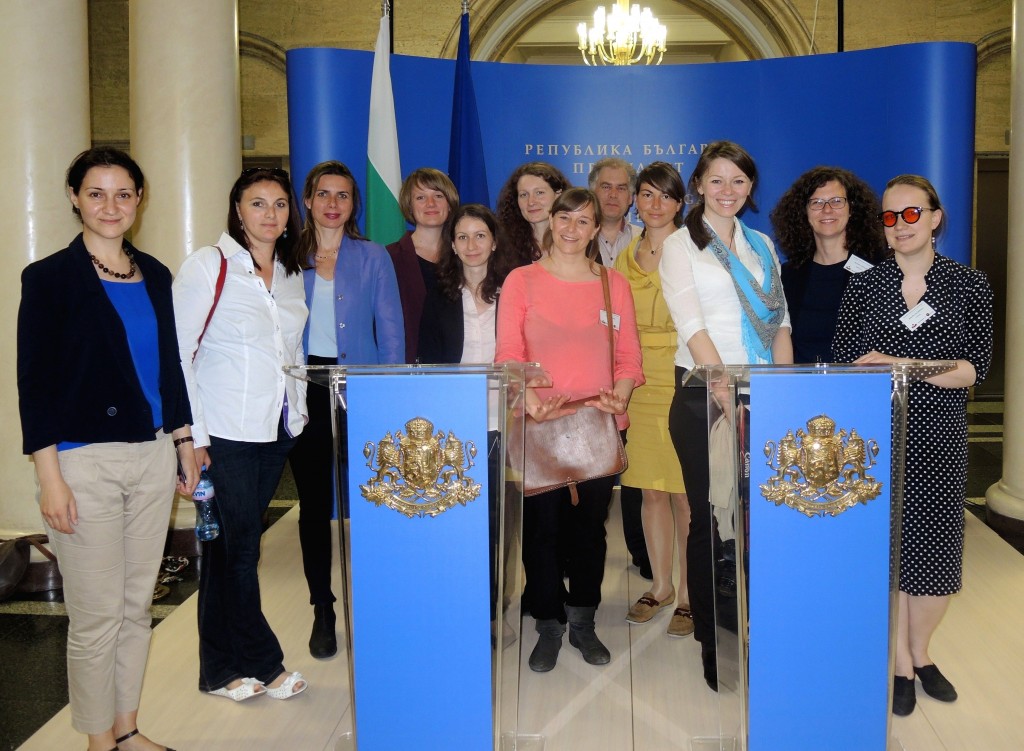As different as the transition experience was among people in the same country (let alone among the three countries), most interviews reveal a similar crucial experience of lasting impact: loss of trust, rules or orientation // Findings from inter-Generation Talks and Interviews with the “Children of Change” from Ukraine, Russia and Germany
As Transition Dialogue-Network, we are taking a narrative approach, looking on how people individually remember, how they reflect on the past, and the impact of transition on their life. We let people tell their story and try to map a vivid picture of transition experience in Eastern Europe in comparative perspective. Activities include a series of interviews in Germany, Russia and Ukraine. A focus is on the “children of change” those who experienced transition from the late 1980s in childhood or teenage time.
The years of change turned out to be a lasting point of reference for people’s life and thinking. This frame of reference is a set of often unreflected narratives, reshaped memories, for younger people partly second hand. These narratives have a great impact on people’s self-image and attitude towards society. They must be revealed to understand what makes citizens become a driver of change – and what not. Also, civic education need to deal with how people actually perceive society and democracy, rather then solely teaching them about it.
We had dozens of guided interviews with participants of the Wendekinder (30-40 years old) and the parent generation (50-70 years old) old. In the German case also interviews between parents and their actual children.
This is what we learnt from the interviews in the differnet countries
UKRAINE
TRANSITION MOMENT The answers are split: Some named the fall of the Soviet Union and Ukraine independence in 1991 as starting point, others Gorbachov’s “Perestroika”. Notably the Chernobyl tragedy 1986 is seen as a powerful symbol of erosion of the Soviet system, because people stopped trusting the government: they were not informed about explosion, though they experienced changes of their social and ecological environment. Chernobyl appeared crucial for people in Ukraine, as it is marked by great uncertainty, loose of trust and fear.
(NO) NOSTALGIA Mostly the generation born in the 70s and earlier is more sceptical about changes, because they remember the good things in the Soviet Union. For them, the guarantees provided such as free health care service were appreciated as one of big pluses, that were lost during  transformation. However, those born in 80s have no feelings of nostalgia: Even in a caring and loving family environment, due to the deficit of food, toys and clothes the Soviet time is remembered as difficult and hardship.
transformation. However, those born in 80s have no feelings of nostalgia: Even in a caring and loving family environment, due to the deficit of food, toys and clothes the Soviet time is remembered as difficult and hardship.
SOLIDARITY 70% agreed that nowadays solidarity is greater than in Soviet time, they experience a new wave of solidary and effective volunteering since the Maydan revolution. The remaining 30% insist that real solidarity was only in Soviet times, because society was based on the value of helping each other in everyday life – and that was gone today.
RUSSIA
TRANSITION MOMENT People remember transition starting in the late 80ies till the beginning of 2000ies. They experienced it as radical change from one social and economic system to a quite different, absolutely new society.
NO RULES One of the striking features of that time is the feeling of ‘no rules’: that most Soviet structures and values in economics and social life were destroyed. New ones needed to be explored and re-invented. Respondents remember this period as free, uncertain, full of hopes and opportunities, and wild. The same experience, however, had a different impact on people’s life: While some got in a pure survival mode and absorbed by family issues and raising children, others seek business opportunities and enjoyed open borders.
SELF RELIENCE One of the main characteristics of transition is the feeling of becoming self-reliant and independent (in some degree). Respondents don’t trust the state, and try to ‘not to deal’ with the state. They also understand their own rights, know when they are broken, and try to defend them. This is also seen by them as a ‘heritage of 90ies’. It is worth to know that the respondents take a critical stand towards the current politics and ideology situation in Russia.
GERMANY
TRANSITION MOMENT Interviews revealed a role switch between children and parents in transition time, as children were able to adapt to the changing society more easily. Parents who were formerly well settled, had to re-orientate; needed to deal with new institutions, rules and values. At the same time, children had to make major decisions for their professional and future life in a dramatically changing educational system. The parents, however, were unable to deal with these issues.
GENERATION DIALOGUE The German case set a focus on dialogue and its effects for relations in the family and between generations. The authors observed three broad patterns of dialogue: 1. children and parents are able to reflect and rethink the past, 2. the dialogue between generation showed clear limits of issues that could be touched, and 3. the dialogue was impossible.
HYPOTHEK OF THE PAST Interviews show, how not talking about the past affects family and generation relations in contrast to those families, where the reflection is not denied. The authors conclude, this effects the overall capacity of a society to critically access the past and present social and political situation: Family members that did not come to terms with transition time privately, were not ready for a debate in a more public space either and less able to deal constructively with current social problems. Yet, many parents do not see a responsibility to speak about the past as a chance to develop future society or social relations. Instead it seems irrelevant to them to deal with something that is gone.
Conclusion
As different as the transition experience was among people in the same country (let alone among the three countries), most interviews reveal a similar crucial experience of lasting impact: loss of trust, rules or orientation. However, this is not only negative. Answers from all three countries suggest that these experiences can be interpreted as opportunities. Of course, this depends on the personal situation. But findings, e.g. from Ukraine, show that the interpretation of transition can be rewritten from negative to positive: While the perception of political institutions is still negative, the Maidan movement lead to a lasting attitude of “the more it is to us, to do something about society”. Findings from Germany suggest that initiating dialogue and reflection can open spaces for such a reassessment.
Contributors/Interviews: Olena Pravylo (Congress of Cultural Activists, Ukraine), Polina Filipova, Vlada Gekhtman and Oksana Bocharova (Sakharov Center, Russia), Dr. Judith Enders, Dr. Mandy Schulze (Perspektive³, Germany) Christine Wetzel (DRA e.V., Germany).
This Research was Presented at
Deutschlandforschertagung ’16: Children of Transition, Children of War. The “Generation of Transformation” from a European Perspective by Olena Pravylo.





